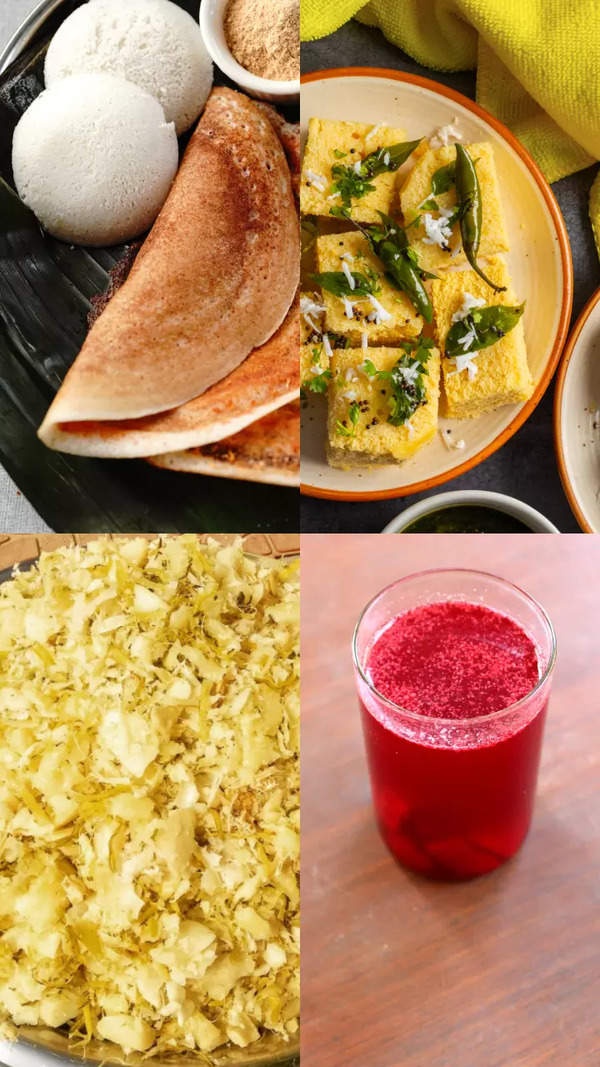15 fruits with the highest and lowest amounts of sugar
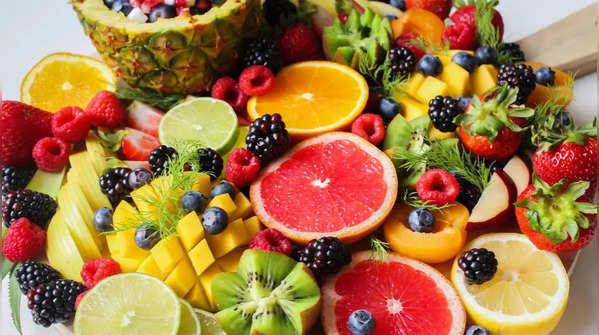
Sugar content in fruits
Fruits contain natural sugars, primarily fructose, which provide a healthier alternative to refined sugars. These natural sugars are accompanied by fiber, vitamins, and antioxidants, which help regulate blood sugar levels and offer numerous health benefits. Consuming whole fruits in moderation can satisfy sweet cravings while supporting overall health, making them a nutritious part of a balanced diet.

Importance of natural sugar
Natural sugars found in fruits are crucial for a balanced diet, providing a healthy source of energy. Unlike refined sugars, fruit sugars come with essential nutrients, fiber, and antioxidants that support overall health. These sugars help regulate blood sugar levels, enhance digestion, and reduce the risk of chronic diseases, making fruits a nutritious, natural sweet treat.

High to low sugar fruits list
Fruits are an essential part of a balanced diet, offering vital nutrients and natural sugars. However, not all fruits are created equal in terms of sugar content. Here, we explore 15 fruits with the highest and lowest sugar levels, providing detailed nutritional information for each.
(images courtesy: Canva)

High-sugar fruits - Mango
Mangoes are tropical fruits known for their sweet, juicy flesh. One cup of sliced mango contains approximately 23 grams of sugar. Nutritionally, mangoes are rich in vitamin C, vitamin A, and folate, making them excellent for immune support and skin health. However, due to their high sugar content, it's best to consume them in moderation, especially for those monitoring their sugar intake. For the unversed, one cup of sliced mango provides about 100% of the daily recommended intake of vitamin C and 35% of vitamin A.

High-sugar fruits - Grapes
Grapes, particularly the red and purple varieties, are packed with antioxidants. One cup of grapes contains around 23 grams of sugar. These small fruits are also a good source of vitamin K, vitamin C, and several B vitamins. Grapes support heart health and have anti-inflammatory properties, but their high sugar content means they should be eaten in controlled portions.

High-sugar fruits - Cherries
Cherries are another fruit high in natural sugars, with about 18 grams per cup. They are rich in antioxidants, particularly anthocyanins, which can help reduce inflammation and improve sleep quality. Cherries also provide vitamins A and C, potassium, and fibre, contributing to overall health and wellness.

High-sugar fruits - Bananas
Bananas are a convenient and nutritious snack, containing around 14 grams of sugar in a medium-sized fruit. They are an excellent source of potassium, vitamin B6, and vitamin C. Bananas also provide a good amount of dietary fibre, which aids digestion and promotes heart health. Bananas contain tryptophan, an amino acid that the body converts into serotonin, a neurotransmitter that helps regulate mood and reduce stress. This vitamin helps in the synthesis of neurotransmitters that influence mood and sleep.

High-sugar fruits - Pineapple
Pineapples are tropical fruits with a sugar content of about 16 grams per cup. They are rich in vitamin C, manganese, and bromelain, an enzyme that aids digestion and reduces inflammation. Pineapples are refreshing and hydrating but should be enjoyed in moderation due to their sugar levels.

High-sugar fruits - Pears
Pears contain approximately 17 grams of sugar per medium-sized fruit. They are a great source of dietary fibre, vitamin C, and potassium. Pears are known for their ability to aid digestion and promote cardiovascular health. Their sweet flavor makes them a popular choice, but portion control is key for those watching their sugar intake.

High-sugar fruits - Watermelon
Watermelon is refreshing and hydrating, with a high water content, but it also has a significant sugar content. It has about 9.4 grams of sugar per cup.
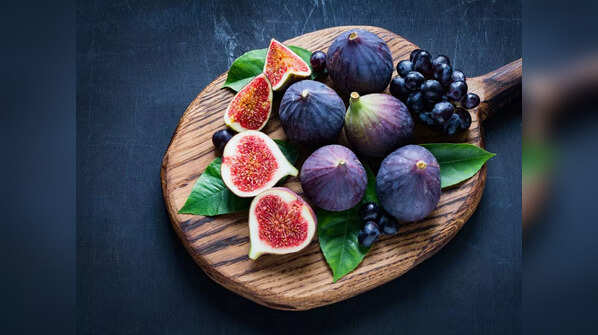
High-sugar fruits - Figs
Figs are a delicious and nutritious fruit known for their sweet taste and chewy texture. They are naturally high in sugar, primarily in the form of fructose and glucose. While figs provide essential nutrients like fiber, potassium, and vitamins such as vitamin K and B vitamins, their high sugar content means they should be consumed in moderation, especially for individuals monitoring their sugar intake or managing conditions like diabetes. Including figs as part of a balanced diet can contribute to overall health, but it's important to be mindful of portion sizes to maintain healthy blood sugar levels.
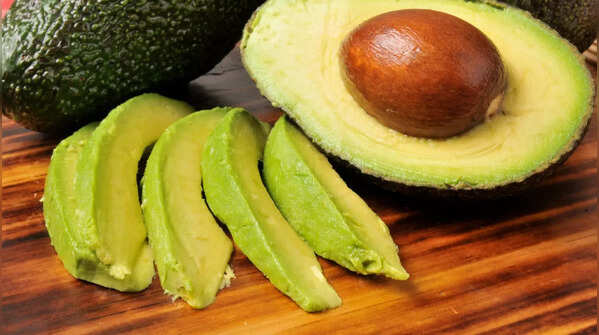
Low sugar fruits - Avocado
Avocados are unique among fruits as they are low in sugar, with less than 1 gram per avocado. The sugars in avocados are primarily natural sugars such as glucose and fructose, with a bit of sucrose. They are high in healthy fats, particularly monounsaturated fats, which are beneficial for heart health. Avocados are also rich in fibre, potassium, vitamin E, and folate, making them a nutrient-dense addition to any diet.

Low sugar fruits - Strawberries
Strawberries are a low-sugar fruit, containing about 7 grams of sugar per cup. They are packed with vitamin C, manganese, folate, and a variety of antioxidants. These nutrients help support immune function, reduce inflammation, and protect against chronic diseases. Their sweet yet tart flavor makes them a versatile and healthy option.
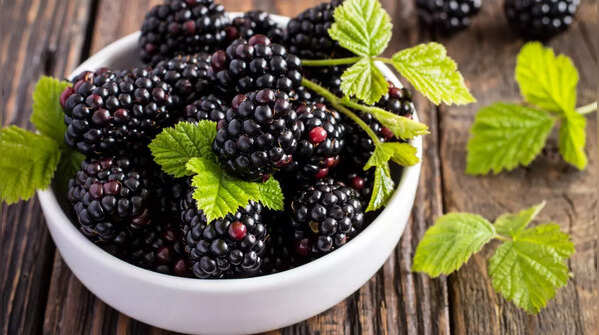
Low sugar fruits - Blackberries
Blackberries are another low-sugar fruit, with approximately 7 grams of sugar per cup. They are an excellent source of fibre, vitamins C and K, and manganese. Blackberries are also rich in anthocyanins, powerful antioxidants that help protect cells from damage and reduce the risk of various diseases.
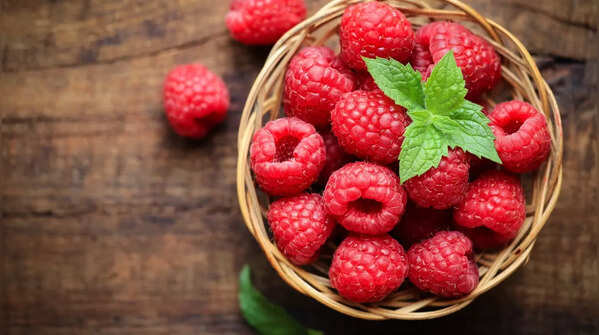
Low sugar fruits - Raspberries
Raspberries have a sugar content of around 5 grams per cup. They are high in fibre, vitamins C and K, and manganese. Raspberries are also loaded with antioxidants, including quercetin and ellagic acid, which have anti-inflammatory and anti-cancer properties. Their low sugar and high nutrient content make them an excellent choice for a healthy diet.

Low sugar fruits - Kiwi
Kiwi fruits contain about 6 grams of sugar per medium-sized fruit. They are rich in vitamin C, vitamin K, vitamin E, and potassium. Kiwis also provide a good amount of dietary fibre, which aids digestion and supports cardiovascular health. Their tangy flavor and nutritional benefits make them a great low-sugar option.

Low sugar fruits - Cranberries
Fresh cranberries are low in sugar, with only 4 grams per cup. They are known for their high vitamin C and fibre content, as well as their potent antioxidants, including proanthocyanidins, which can help prevent urinary tract infections. Due to their tart taste, cranberries are often consumed in sweetened forms, so choosing unsweetened varieties or incorporating them into savory dishes is a healthier option.

Low sugar fruits - Papaya
Papaya contains approximately 8 grams of sugar per 100-gram serving, which is relatively moderate compared to many other fruits. This natural sugar content is accompanied by a wealth of vitamins, minerals, and fiber, making papaya a nutritious choice for most diets. The sugars in papaya are primarily fructose, which is metabolized more slowly than glucose, helping to avoid rapid spikes in blood sugar levels.

